-
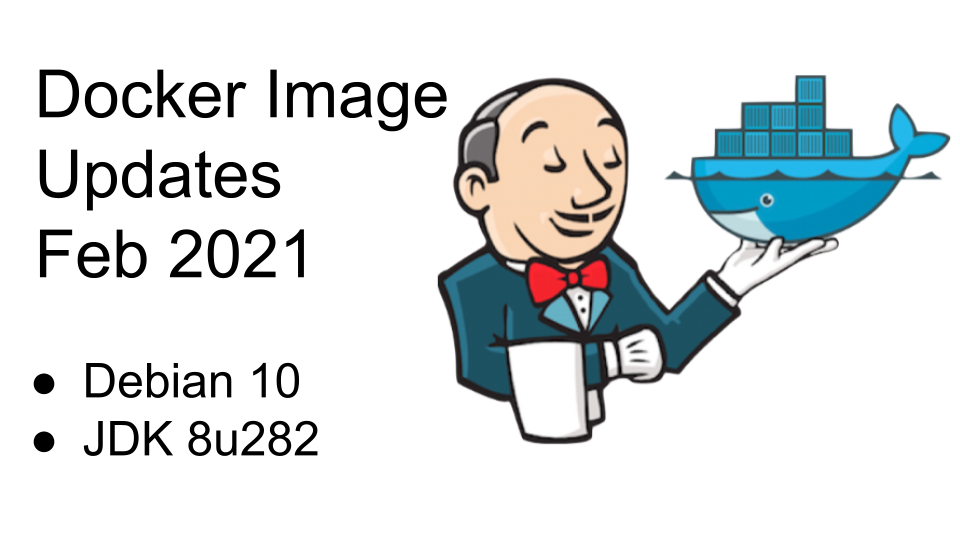
Docker image updates
-
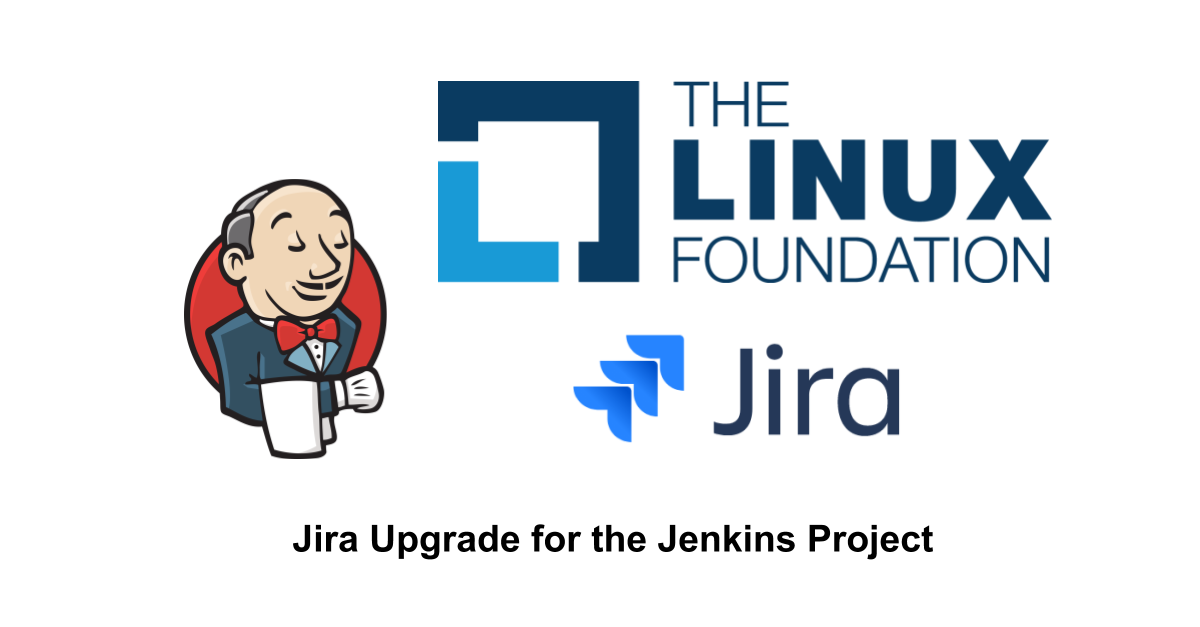
Jira upgrade for the Jenkins project
-
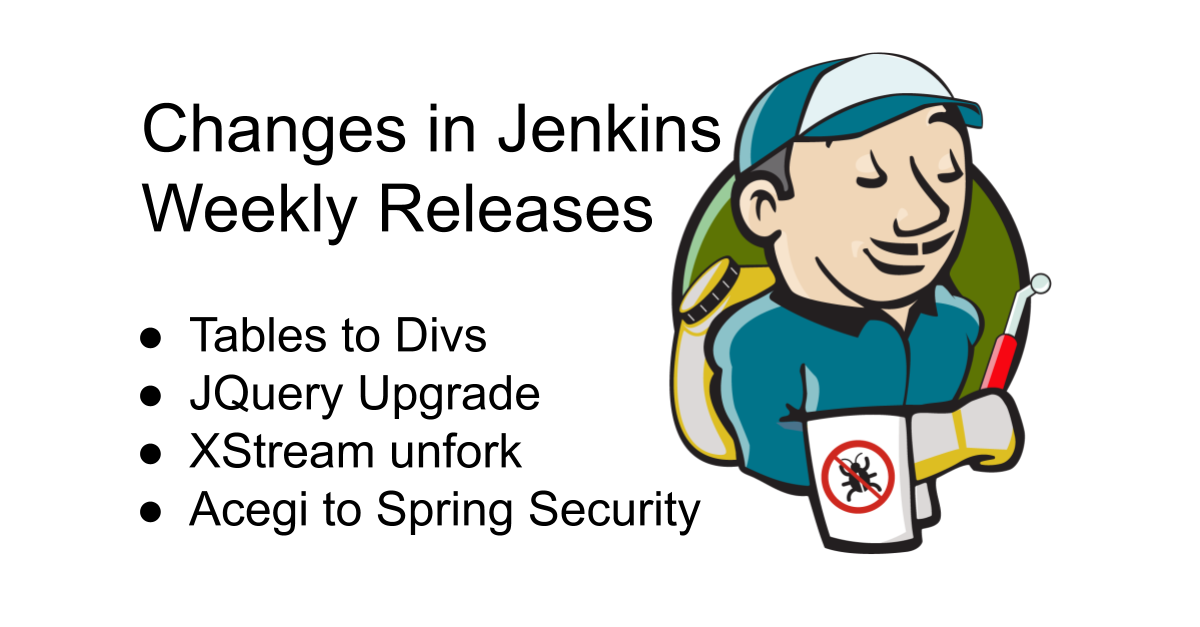
Jenkins 2.264+: Major changes in the weekly release line
-

Testing Jenkins 2.249.1 on Windows
-

Jenkins 2.235.3: New Linux Repository Signing Keys
-
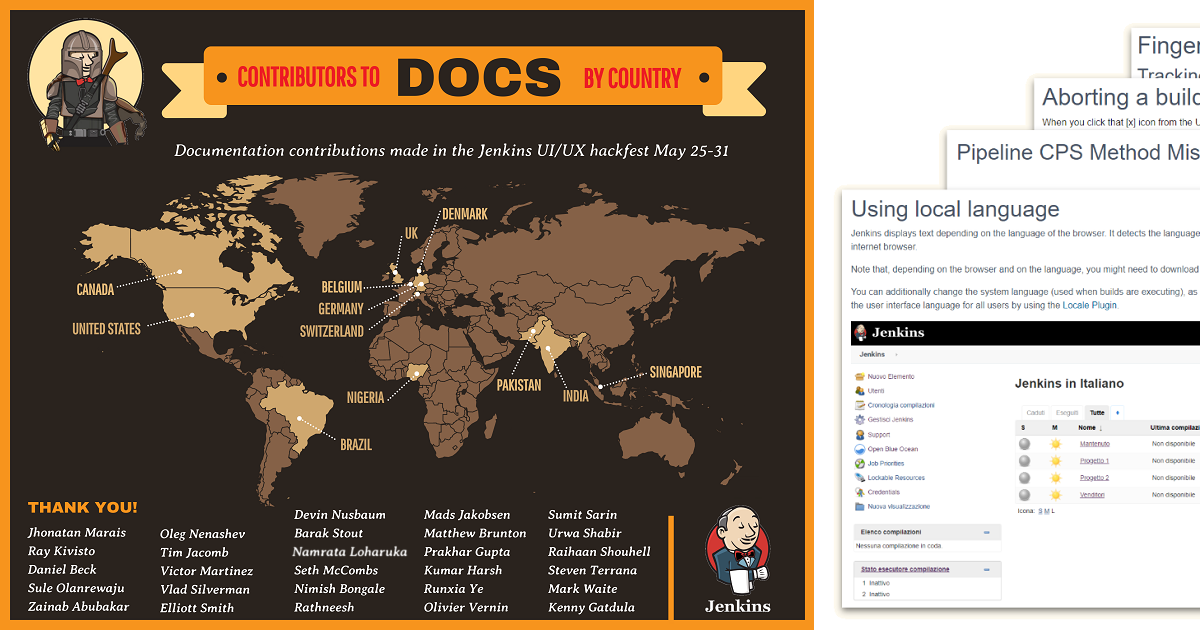
Jenkins User Experience Hackfest Documentation Results
-
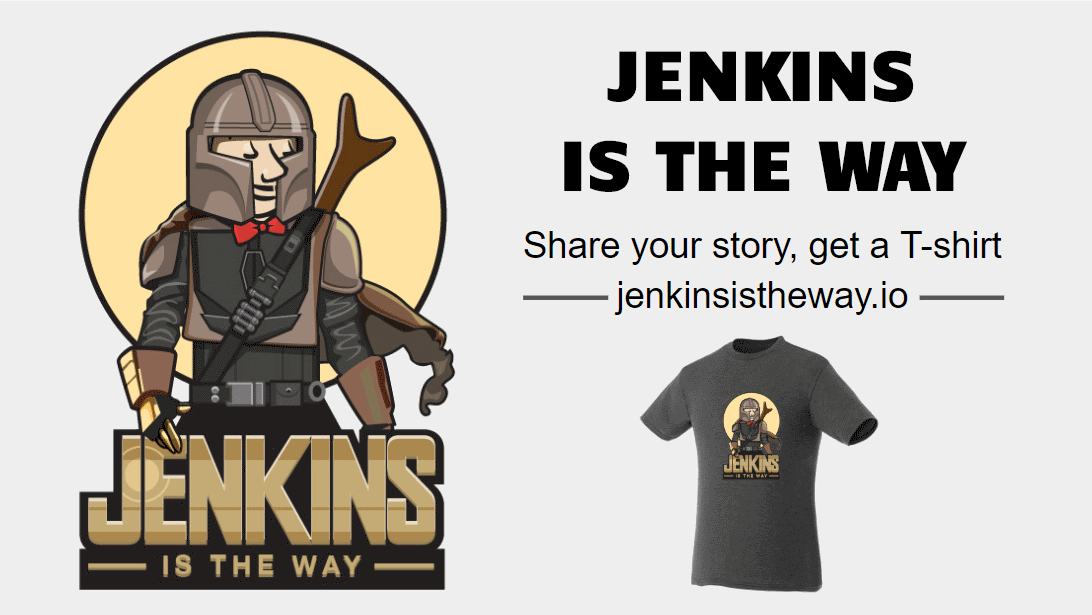
Call for User Stories - Jenkins is the Way
-
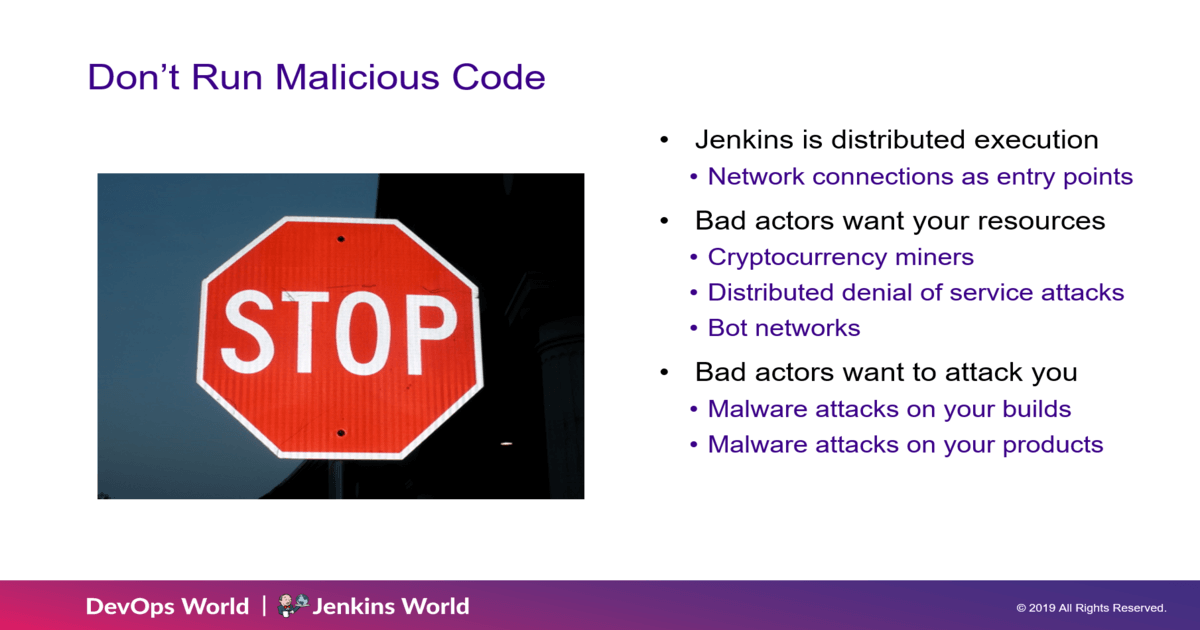
Thinking About Jenkins Security - DevOps World | Jenkins World 2019
-
Jenkins Documentation Special Interest Group